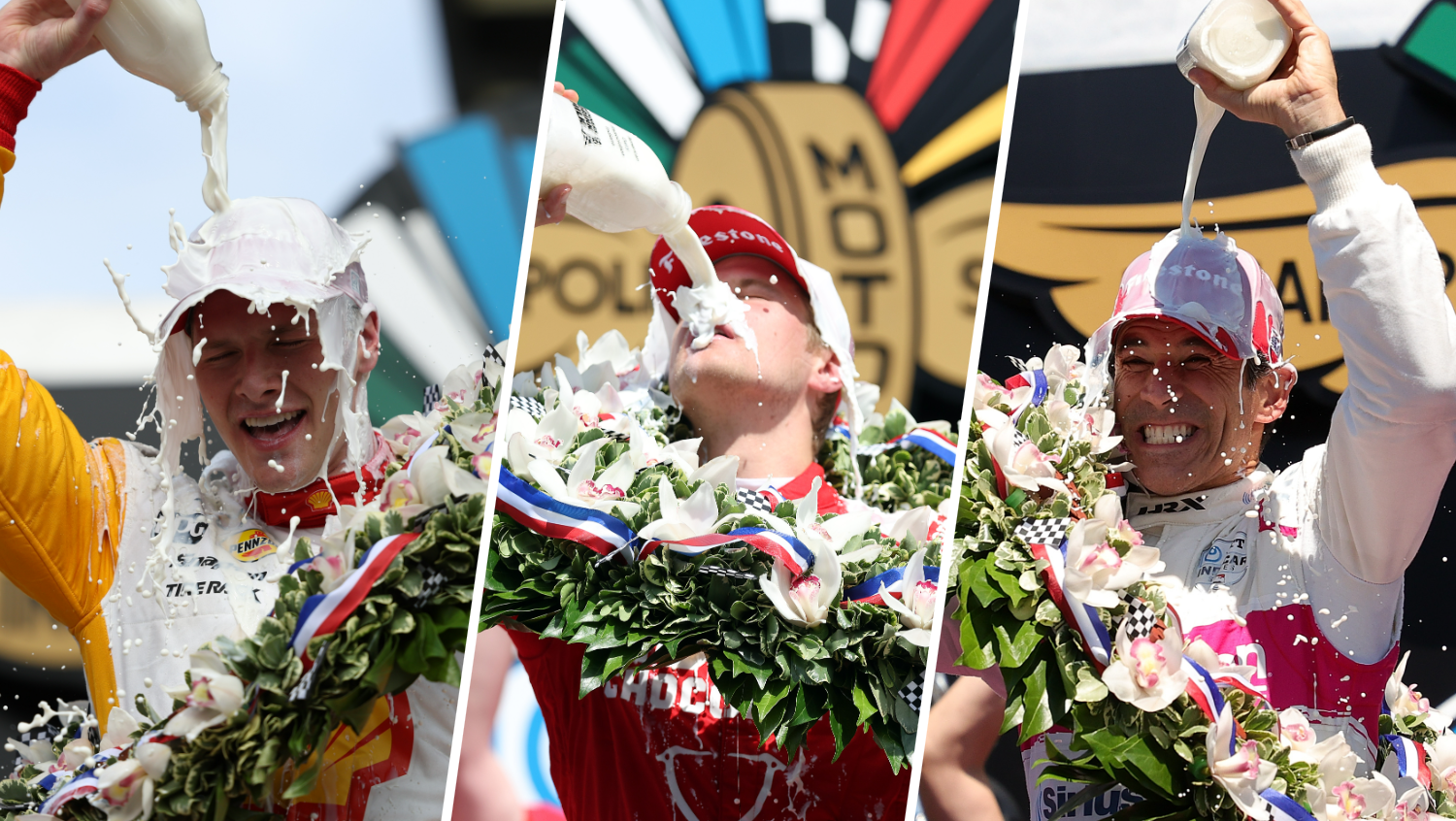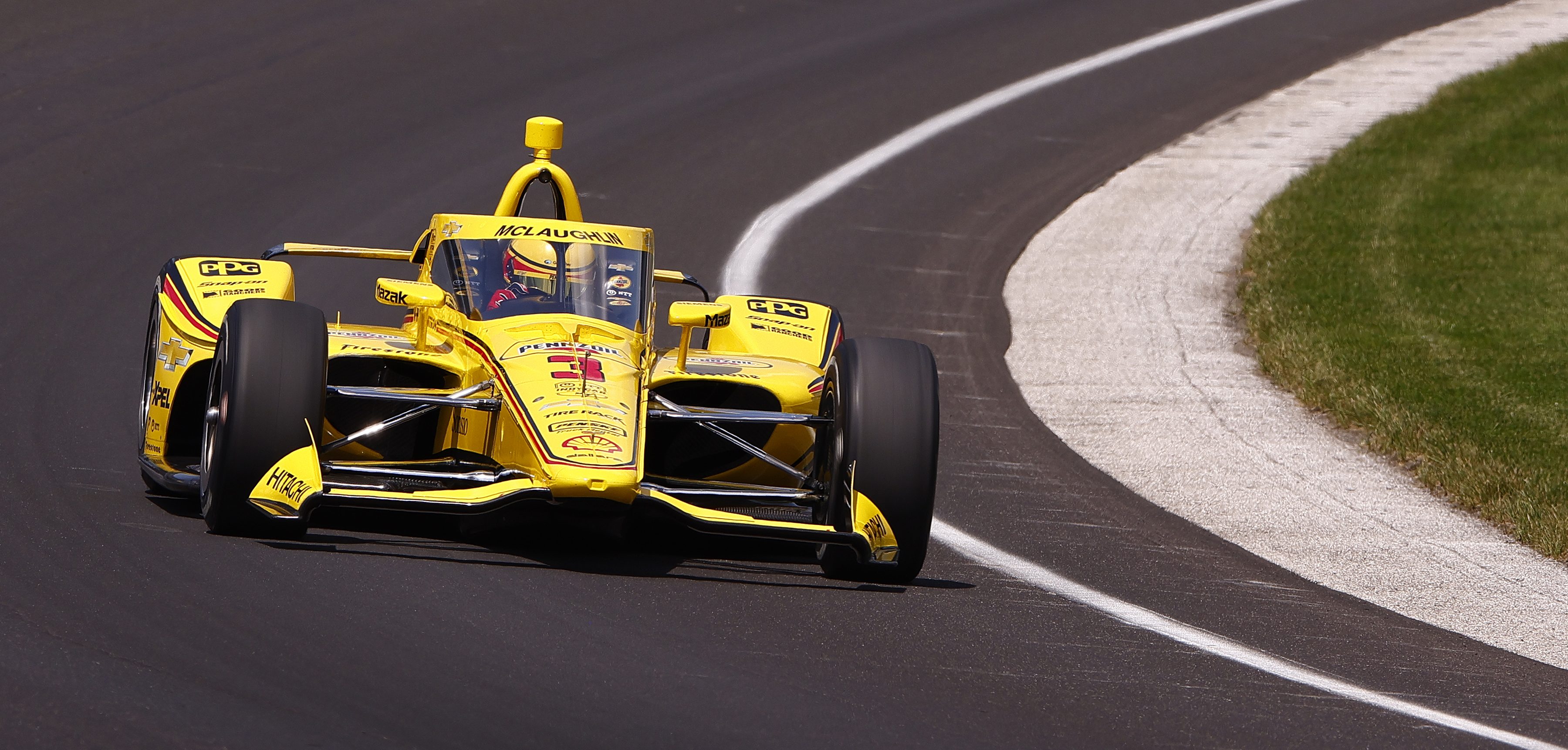It's time for the "The Greatest Spectacle in Racing."
The second leg of Sunday's motorsports tripleheader (F1 in Monaco, NASCAR in Charlotte) will be the 108th running of the Indianapolis 500.
From the milk to the yard of bricks, the Indy 500 is a historic event filled with tradition. And there's plenty of hype entering the 2024 race, with Team Penske looking quick and NASCAR champion Kyle Larson attempting double duty (racing the Indy 500 in the afternoon and NASCAR at Charlotte in the evening).
Here's all the info you need to know for the 2024 Indy 500:
Get top local stories in DFW delivered to you every morning. Sign up for NBC DFW's News Headlines newsletter.
Where is the Indy 500 held?
Indianapolis Motor Speedway has been the site of the Indy 500 since its first running in 1911.
The 2.5-mile rectangular oval is located in Speedway, Indiana, just six miles west of downtown Indianapolis. It is the third-oldest permanent automobile race track in the world and its permanent seating capacity of 257,325 makes it the highest-capacity sports venue in the world.
The track is nicknamed "The Brickyard" because it was originally paved with bricks in 1909. Today, only the start-finish line is made of bricks while the rest of the circuit is paved with asphalt.
When is the 2024 Indy 500?
The 108th running of the Indianapolis 500 is set for Sunday, May 26.
What time does the Indy 500 start?
Green flag for the Indy 500 will be at 12:45 p.m. ET.
Driver introductions will take place at 11:47 a.m. ET, followed by Philip Phillips singing "God Bless America" at 12:21 p.m. ET and Jordin Sparks singing the national anthem at 12:24 p.m. ET. Roger Penske will give the command to start engines at 12:38 p.m. ET.
For a full timeline of events at the track, click here.
How to watch the Indy 500 this year
All coverage from Indy will air on NBC and Peacock. Here's the TV and streaming schedule for Sunday:
- Indy 500 Pre-Race: 11 a.m. ET, NBC and Peacock
- 108th running of the Indianapolis 500: 12:30 p.m. ET, NBC and Peacock
Drivers to watch at the Indy 500
Kyle Larson, No. 17, Arrow McLaren/Hendrick Motorsports
All eyes will be on the 2021 NASCAR Cup champion this weekend. He's slated to make his IndyCar debut in the series' biggest event before flying down to Charlotte and driving 600 miles in NASCAR's longest race. The first few weeks in Indy have gone well for Larson -- he qualified fifth and displayed good pace in practices. Regardless of how he finishes, Larson will be the story on Sunday as he looks to become just the second driver to complete all 1,100 miles in both races.
Josef Newgarden, No. 2, Team Penske
The defending Indy 500 champion is well-positioned to be the first repeat winner since Hélio Castroneves in 2002. Team Penske swept the front row in qualifying, with Newgarden slated to start third behind his two teammates. He started 17th last year, so getting to the front from third shouldn't be a problem. Newgarden, a two-time IndyCar champion, is looking to become just the 21st driver with multiple Indy 500 wins.
Scott McLaughlin, No. 3, Team Penske
Speaking of Team Penske, McLaughlin has been carrying the torch since they got to Indy. The New Zealander is starting on pole after a blistering 234.220 mph four-lap average in qualifying. McLaughlin, 30, is making his fourth Indy 500 start after finishing a career-best 14th last May. Of his five career wins, none have come on an oval -- perhaps this will be McLaughlin's breakthrough.
Alex Palou, No. 10, Chip Ganassi Racing
Talk of the two-time champion and current IndyCar points leader has been oddly quiet in the build-up to Sunday. He won at the Indianapolis Grand Prix Circuit on May 11, but his speed on the oval this year hasn't been at Team Penske or Arrow McLaren's level just yet. The Spaniard qualified 14th after never starting worse than seventh in his first four Indy 500 starts. Palou has led at least 35 laps in each of the last three Indy 500s, so he knows how to get around the track. Monitoring his inevitable charge through the field on Sunday will be interesting.
Santino Ferrucci, No. 14, A.J. Foyt Racing
If you're looking for an underdog with the potential to win, don't look past Ferrucci. The 25-year-old Connecticut native has five Indy 500 starts with finishes of seventh, fourth, sixth, 10th and then third last year (his first and only career podium). While he isn't driving for one of the powerhouse teams, Ferrucci wedged his way into sixth on the starting grid. His team owner is 89-year-old racing legend A.J. Foyt, a four-time Indy 500 winner who would love to get back in victory lane.
Weather forecast for Indianapolis 500
As of Sunday morning, it doesn't look great.
NBC Chicago is predicting an 68% chance of rain with the potential for severe thunderstorms in Speedway, Indiana., beginning around noon. You can keep up to date with the latest forecast right here.
What happens if it rains during the Indy 500?
The Indy 500 cannot be run in the rain.
IndyCar will have a fleet of trucks and jet dryers on site to start drying the track as soon as rain stops. It could take anywhere from 90 minutes to three hours to dry the entire track, depending on the wind and sunshine.
Has the Indy 500 ever been rained out?
Yes -- the Indy 500 has been impacted by rain 12 times in the first 107 runnings.
The race is official after 101 laps -- once it gets past halfway, it can be called and the finishing order would be determined based on where everyone is running at that time.
Here's what happened in those 12 instances:
- 1915: Rained out on May 29, completed on May 31.
- 1926: 160 laps (400 miles) completed.
- 1940: 150 laps (375 miles) completed, final 50 laps run under caution because of rain.
- 1950: 138 laps (354 miles) completed.
- 1967: 18 laps (45 miles) completed, final 182 laps completed the next day.
- 1973: 133 laps (332.25 miles) completed over three days due to rain.
- 1975: 174 laps (435 miles) completed.
- 1976: 102 laps (255 miles) completed.
- 1986: Rained out on May 25 and 26, completed on May 31.
- 1997: Rained out on May 25, 15 laps (37.5 miles) completed on May 26, final 185 laps completed on May 27.
- 2004: 180 laps (450 miles) completed.
- 2007: 166 laps (415 miles) completed.



